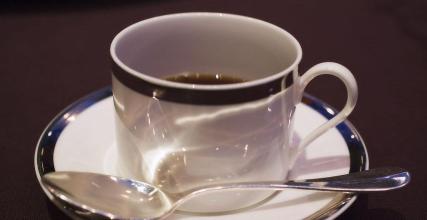Introduction to the treatment methods of Kenyan boutique coffee
Don't underestimate the small farmers in Kenya, they are just like ants, and their overall production capacity is higher than that of large farms, about six to four, which is quite rare in bean-producing countries. Kenyan coffee is widely appreciated by connoisseurs, thanks in large part to small farmers guarding the foothills and producing high-quality coffee. In addition, Kenya beans must have a strict grading system. Coffee beans taken out by washing plants are divided into five grades according to size, shape and hardness, with the highest being PB, followed by AA++, AA+, AA and AB. This grading system is similar to Colombia, mainly in terms of particle size and shape, but selling well does not necessarily lead to good flavor. This is what coffee fans should know. The current international evaluation of Kenyan beans is not as good as in previous years. It is believed that this has something to do with the abnormal climate, which is not conducive to the growth of coffee, but the matter is not so simple. This is related to the Kenyan authorities' efforts to promote the new variety Ruiru11 with stronger disease resistance and higher yield per unit. According to the taste test, the new variety with higher economic value has a worse flavor than the traditional variety, and to make matters worse, Ruiru11 is about to replace the traditional Arabica and Bourbon varieties. In addition, the quality of coffee is declining, the auction price is not good, and the income of small farmers is reduced. Coupled with the fact that the coffee management bureau is not a paradox, farmers' enthusiasm for coffee will be greatly reduced, which will of course affect the quality of coffee. Moreover, Kenya's outstanding washing technology has also declined, which is the killer of strangling quality.
In addition, Kenya was an early British colony, and the British had established a perfect cultivation and quality control system. After the independence of Kenya, the coffee industry has made great strides on the existing basis and has become a foreign exchange earning industry in Kenya. There are two types of coffee farms in Kenya. One is a large planting farm covering an area of more than five acres, but the average elevation is low. As far as Kenyan coffee is concerned, the coffee bean quality of the big farm is only medium. The best Kenyan beans come from small farms, most of which are located in the foothills or volcanic slopes above 5,000 to 6,000 feet. Each small farmer has a capacity of only 20 to 70 bags per season and cannot afford to invest in expensive washing plants, but small farmers are very United. Hundreds or thousands of households are gathered to set up a cooperative farm, which is funded by the government to build a washing treatment plant, and the coffee fruits picked by small farmers are sent to the cooperative farm for unified processing. First remove the half-ripe or rotten fruit, then peel, ferment, decompose the flesh, remove the coffee beans, then dry and polish, the whole process is supervised by the official Coffee Administration, which ensures the quality of Kenyan coffee. The washing processing technology and high-standard quality control of Kenyan beans have always been led by bean-producing countries in Ethiopia, the origin of Arabica coffee trees to the north of Kenya, but it was not until the beginning of the 20th century that they began to cultivate coffee. Missionaries introduced Arabica trees from Yemen in the 19th century, but did not plant a large number of them. It was not until 1893, when Brazil's ancient bourbon coffee seeds were introduced, that coffee was cultivated on a large scale. Kenyan coffee is of Brazilian origin, and the taste of Kenyan beans is very different from that of Brazilian beans due to differences in water, climate and handling. Brazilian coffee is planted at a low altitude, with soft texture and no obvious sour taste. In contrast, Kenyan coffee trees are mainly concentrated on the slopes near Mount Kenya, about 4 to 6500 feet above sea level, which is suitable for coffee beans to develop their flavor, because the mountain temperature is lower and the growth is slower, and the aromatic components of coffee beans are fully developed. the acidity of the fruit is more obvious and the texture is harder. In addition, Kenya was an early British colony, and the British had established a set of perfect cultivation and quality control system. After the independence of Kenya, the coffee industry built on the existing foundation.

Important Notice :
前街咖啡 FrontStreet Coffee has moved to new addredd:
FrontStreet Coffee Address: 315,Donghua East Road,GuangZhou
Tel:020 38364473
- Prev

Introduction to the Manor Environment of Coffee planting region in Brazil Fine Coffee Bean
Brazilian coffee generally refers to coffee produced in Brazil. There are many kinds of coffee in Brazil. Like other Arabica coffee, Brazilian coffee is called Brazilian coffee Brazils to distinguish it from Milds coffee. The vast majority of Brazilian coffee is unwashed and sun-dried and is classified according to the name of the state of origin and port of transport. Brazil has 21 states and 17 states produce coffee, but among them
- Next

Introduction to the flavor and taste of Bankimaji boutique coffee beans
Bench Maji, located in southwestern Ethiopia and not far from neighboring Sudan, is easy to find using Google map. Although the flavor of Banchimaji Gesha Estate is different from that of Panamanian Geisha, it is still worth tasting. It is rare in many regions of Ethiopia for its varied flavor of spices and fruits.
Related
- Detailed explanation of Jadeite planting Land in Panamanian Jadeite Manor introduction to the grading system of Jadeite competitive bidding, Red bid, Green bid and Rose Summer
- Story of Coffee planting in Brenka region of Costa Rica Stonehenge Manor anaerobic heavy honey treatment of flavor mouth
- What's on the barrel of Blue Mountain Coffee beans?
- Can American coffee also pull flowers? How to use hot American style to pull out a good-looking pattern?
- Can you make a cold extract with coffee beans? What is the right proportion for cold-extracted coffee formula?
- Indonesian PWN Gold Mandrine Coffee Origin Features Flavor How to Chong? Mandolin coffee is American.
- A brief introduction to the flavor characteristics of Brazilian yellow bourbon coffee beans
- What is the effect of different water quality on the flavor of cold-extracted coffee? What kind of water is best for brewing coffee?
- Why do you think of Rose Summer whenever you mention Panamanian coffee?
- Introduction to the characteristics of authentic blue mountain coffee bean producing areas? What is the CIB Coffee Authority in Jamaica?

